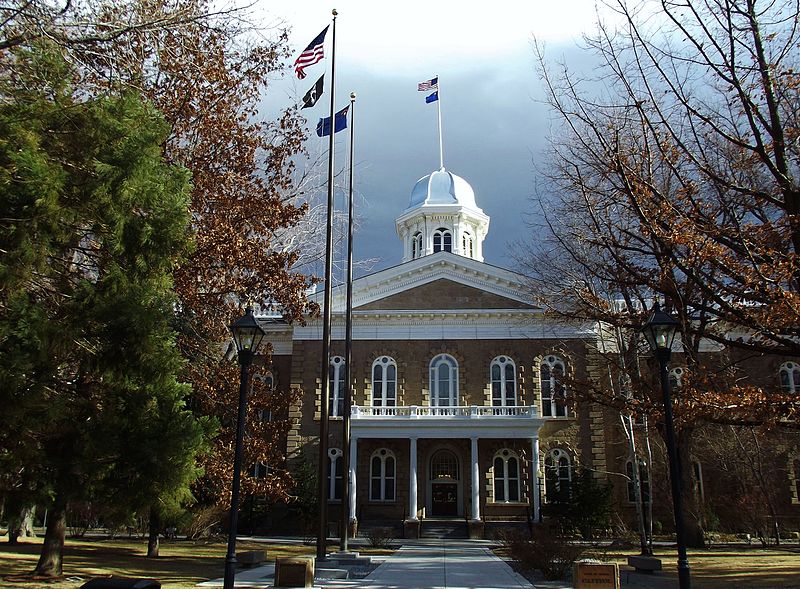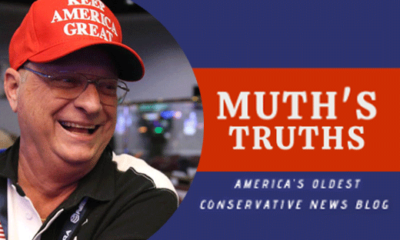
(Bethany Blankley) – A new Nevada law that reverses planned reductions of the Modified Business Tax (MBT) rates is unconstitutional and will be challenged in court, critics say.Nevada Democrats passed Senate Bill 551 to find an extra $100 million for Gov. Steve Sisolak’s pledge to give more money to the state’s struggling public school systems.
Sisolak signed the bill into law on June 12, but a lawsuit would delay its effective date of July 1.
Sisolak said he and the Democratic Legislature have now “funded the largest education budget in state history, enhanced funding for school safety, gave educators a raise, put more money towards classroom supplies, increased the per-pupil expenditure, and moved to overhaul Nevada’s 50-year-old funding formula.”
Democrats also voted to extend the DMV technology fee set to sunset in 2021, which would generate an additional $7 million.
However, Nevada’s constitution requires a two-thirds majority to pass “anything that increases revenue in any form,” Senate Minority Leader James Settelmeyer, R-Gardnerville, says. Courts have ruled this way on sunsets before and on any new or increased taxes, as well, he adds.
Democrats needed at least one Republican vote to reach that supermajority, which they didn’t get.
“The Nevada Constitution is extremely clear on what revenue-generating votes require a two-thirds majority,” Michael Schaus, communications director at the Nevada Policy Research Institute (NPRI), told The Center Square.
Article 4, Section 18(2) of the constitution states, “an affirmative vote of not fewer than two-thirds of the members elected to each House is necessary to pass a bill or joint resolution which creates, generates, or increases any public revenue in any form, including but not limited to taxes, fees, assessments and rates, or changes in the computation bases for taxes, fees, assessments and rates.”
“Obviously, the MBT tax vote was a change to current law for the express purpose of increasing public revenue,” Schaus says. “The Democrat leadership’s disregard for the plain language of the constitution is a dangerous precedent for taxpayers who have voted to put restraints on government’s ability to raise taxes.”
Schaus is referring to the constitutional amendment voters approved in 1994 and 1996.
The Legislative Counsel Bureau’s Legal Division disagrees with Republicans and the NPRI. In its 24-page opinion, it states, “to date there are no reported cases from Nevada’s appellate courts addressing the legal questions raised by Republicans regarding Article 4, Section 18(2).”
Settlemeyer called the opinion “a work of legal fiction.”
According to a recent report by the State Department of Taxation, by Sept. 30 of every even-numbered year, the department is required to evaluate adjusting the MBT. To do this, it assesses the amounts of MBT, bank branch excise tax, and commerce tax collected for the previous fiscal year and compares them to their forecasted amounts.
“If the collected amount exceeds the forecasted amount by more than four percent, the MBT rates (for general business, financial institutions and mining) must be decreased proportionally so that the combined collected amount would have been only four percent higher than the forecasted amount,” the department states.
For Fiscal Year 2018, total collections came in at 10.1 percent above forecast (over the 4 percent allowable threshold). The department calculated a rate reduction for the general business tax from 1.475 percent to 1.378 percent, and for financial institutions and mining from 2 percent to 1.853 percent. The new rates would have gone into effect on July 1 had SB 551 not been signed by the governor.
The new law keeps the rates at 1.475 percent and 2 percent, respectively, “and eliminates the entire rate reduction procedure so that in future years we don’t have to calculate the 4 percent over forecast threshold at all,” Eden Larson, public information officer at the State Department of Taxation, told The Center Square.
The impact of the bill is two-fold: the tax rates won’t go down, and now no statutory mechanism exists to reduce them going forward, Larson said.
“At this point, a lawsuit would be the only way to enforce the intent of the constitution against legislative leadership who apparently felt empowered to ignore the plain language of the law,” Schaus said.
By






Facebook
Twitter
Pinterest
RSS